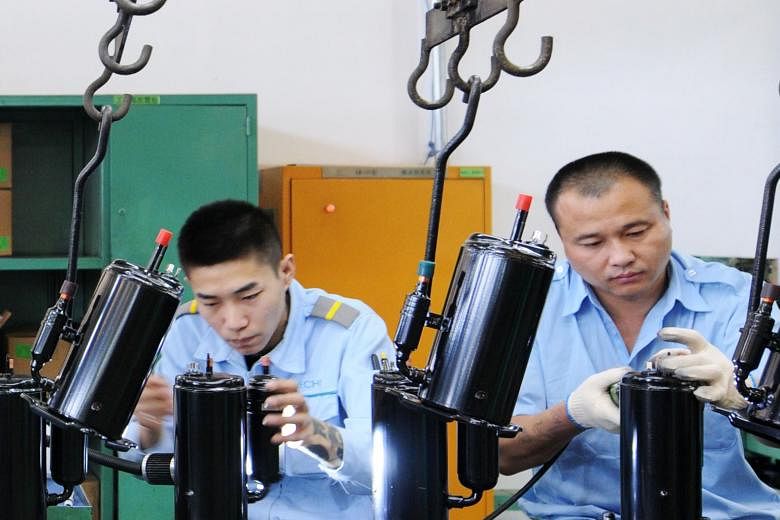BEIJING • China has unveiled a package of policies to boost domestic demand as trade tensions threaten to worsen the nation's economic slowdown.
From a tax cut aimed at fostering research spending to special bonds for infrastructure investment, the measures announced late on Monday following a meeting of the State Council in Beijing are intended to form a more flexible response to "external uncertainties" than had been implied by budget tightening already in place for this year.
Fiscal policy should now be more proactive and better coordinated with financial policy, the statement said - a signal that the Finance Ministry will step up its contribution to supporting growth alongside the central bank.
China's central bank has cut reserve ratios three times this year and unveiled a range of measures for the private sector and small businesses.
With the economic impact of reciprocal tariffs on trade with the United States as yet unclear and no end to the trade dispute in sight, policymakers are pulling multiple levers to stabilise the economy.
For now, that is being done without resorting to large-scale stimulus or broad-based monetary easing, as officials remain committed to a multi-year campaign to curb debt growth.
"I don't think there is a significant easing or a policy U-turn; it's more of a fine-tuning," said Mr Larry Hu, head of China economics at Macquarie Securities in Hong Kong. "Policymakers are sewing patches, offsetting the deleveraging drive that was too rapid and fierce."
The onshore yuan fell as much as 0.65 per cent to 6.8295 per US dollar, the lowest level since June last year. Stocks in Shanghai and Hong Kong advanced.
Nomura Holdings said the statement signals "the start of fiscal stimulus", and Deutsche Bank said it is "confirmation of policy stance changing towards loosening".
The meeting reiterated language that China will strike a balance between easing and tightening, and keep liquidity "reasonable and sufficient".
While there has not been an official shift from the central bank's "prudent and neutral" policy, steps announced indicate officials are taking a supportive stance amid the trade spat with the US.
On Monday, the People's Bank of China lent 502 billion yuan (S$100 billion) to financial institutions via its one-year medium-term lending facility, stepping up efforts to support lending as growth slowed.
The economy grew 6.7 per cent in the second quarter, the slowest expansion since 2016. Growth is forecast to slow this year to 6.5 per cent, in line with the official target.
The policy package contained measures that included giving an additional tax cut of 65 billion yuan to firms with R&D expenditure, expediting non-budgeted special bond sales to assist local government infrastructure financing, and easing restrictions on banks' issuance of financial bonds for small firms.
Private investment is to be boosted by introducing projects in transport, gas and telecommunications; local governments will be pushed to make better use of untapped fiscal funds; and policies to attract foreign businesses to re-invest will be improved together with more opening up.
BLOOMBERG, REUTERS

